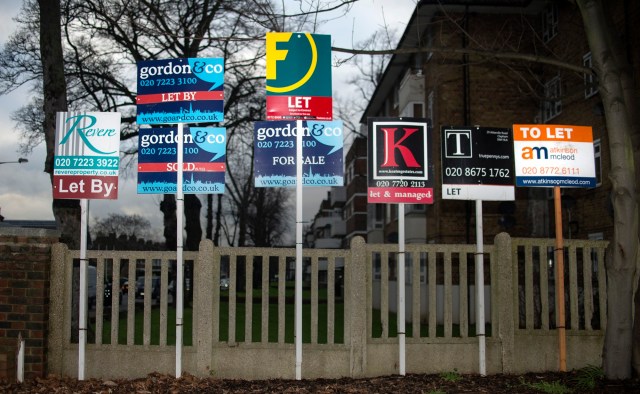In London, renters now outnumber homeowners.
If you have rented a property in the private rental market, you probably have a tale or few to tell of cowboy antics, dodgy contracts, sky-high fees, false promises, properties pulled at the last minute, infestations – I could go on. But despite the besetting issues facing renters, political discourse fixates almost exclusively on home ownership.
Don’t get me wrong, the focus on build, build, build is long overdue. Almost 90% of 18-34 year olds want to own their own home one day, yet more than a quarter believe they may never achieve that.[1. David Tigar, ‘UK housing crisis: poll reveals city v country split on who to blame’, the Guardian, 30 April 2016] According to the latest English Housing Survey, fewer than 60% of all private renters expect to buy in the future (though that’s not to say they all want to).[2. .English Housing Survey 2015-16, Headline report, Department for Communities and Local Government, March 2017] I get it: home ownership is increasingly out of reach and not just for the young. Only among those aged 45 and above do you find more home owners than private renters, helping to explain the high levels of asset inequality.
But can we just pause a moment and recognise that for some people, even if we do achieve a massive increase in housing supply and a correspondingly large drop in prices, home ownership is still unlikely to be an option. It’s a point James Kirkup makes in his excellent essay for UnHerd: “better, longer tenancies and more social housing…matter much more to people with low incomes”.
Even those who go on to be homeowners will likely spend a decent chunk of time renting. Given the column inches dedicated to lamenting the plight of the first-time buyer, you’d be forgiven for thinking we’ve seen a dramatic drop in the age of those climbing the first rung of the property ladder. But the opposite is true. A decade ago the average first time buyer was 31, today its 32.[3. Ibid] True, the proportion of 16 to 24-year-old first-time buyers has plummeted since 1995-96, but the proportion of young people attending university has increased by almost 25%. Frankly, it’s not the case that early twenty-somethings are desperate to take on a mortgage fresh out of uni. Social norms are changing – getting married and having children happens later, buying a house slightly later fits that trend.

More people are renting for longer and housing costs now swallows up to half of a tenant’s income. That’s why, to paraphrase the Prime Minister, rental property prices and practices should be one of the burning injustices prioritised by the government.
“But building more homes will reduce rents”, you reasonably cry. Yes, absolutely, but the specific aim to increase supply in the letting market is rarely front and centre in the discussions on the housing crisis. The flagship announcement at the Conservative party conference this week was a £10 billion injection for Help to Buy. Setting aside the stupidity of an expensive policy that will exacerbate the crisis (supply and demand, Prime Minister?), the narrative, again, is all about buyers. Never renters.
It’s a missed opportunity because the Government actually is trying to help private renters. The Build to Rent (BTR) programme, originally implemented in 2012, was aimed at increasing the supply of rental properties. Planning issues and access to (public sector) land have been impediments, as has regulatory uncertainty, but the Government’s housing paper published earlier this year demonstrates an intention to tackle these. And the British Property Foundation believes BTR can be an attractive asset class for long-term investors.[4. .Unlocking the benefits and potential of build to rent, British Property Foundation, 7 February 2017] It’s a win-win – as long as the Government backs rhetoric with action.
At the same time, government needs to rebuild a social sector decimated by Right to Buy (since 1981, the number of social housing properties has fallen by more than a quarter, a drop of 1.4 million). Housing benefit recipients are increasingly living in the private rental sector where rents are much higher and tenancies less secure. The quality of the accommodation is also poorer – 28% of private rental sector properties were deemed ‘non-decent homes’ in 2015-16 compared to 13% on the social rental sector.[5. .English Housing Survey 2015-16, Headline report, Department for Communities and Local Government, March 2017] Taxpayers money is not being well spent.
The party conference announcements[6. These announcements included a register for all letting agents and a redress scheme and Housing Court to ensure tenants have a route to justice in cases of mistreatment] by Communities and Local Government Secretary Sajid Javid are a step towards holding rogue landlords and letting agents to account and strengthening tenant rights, but only if accompanied by enforcement teeth.
The Prime Minister’s £2 billion pot to increase building in the social sector is pitiful. Downing Street have confirmed it equates to a miserly 5,000 homes a year for five years. The Government needs to be much, much bolder. They should lift the cap on local authorities’ ability to borrow to build, while simultaneously providing clarity for both councils and housing associations on the level of future social rents (something George Osborne threw into chaos when, in 2015, he announced four years of 1% cuts, reducing revenues available for building).
Government should also back off the idea that any private rental properties built by new local authority ventures should be subject to Right to Buy – it’s counterproductive, not to mention unfair to those not fortunate enough to be living in social housing. Our obsession with home ownership must not lead to inadequate housing for those most in need.
Home ownership is the bedrock of the middle class – it’s core to social mobility and tackling the wealth divide. As many people argue, making home ownership more accessible, by making it more affordable, is undoubtedly key to rebuilding people’s faith in capitalism. But in our excitement to make that a reality we mustn’t forget that high quality, affordable housing should be available to all – and not everyone can, or wants, to own their own home.









Join the discussion
Join like minded readers that support our journalism by becoming a paid subscriber
To join the discussion in the comments, become a paid subscriber.
Join like minded readers that support our journalism, read unlimited articles and enjoy other subscriber-only benefits.
Subscribe